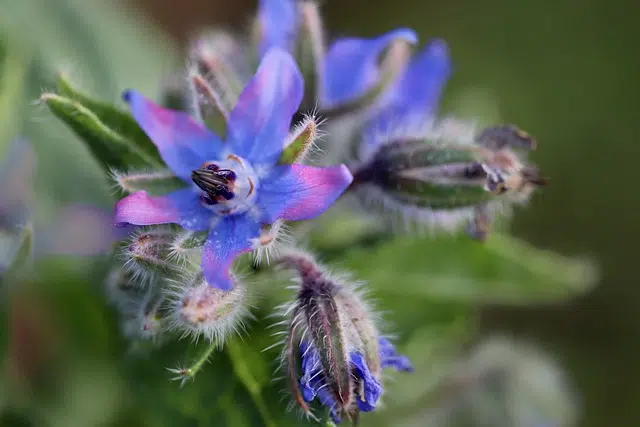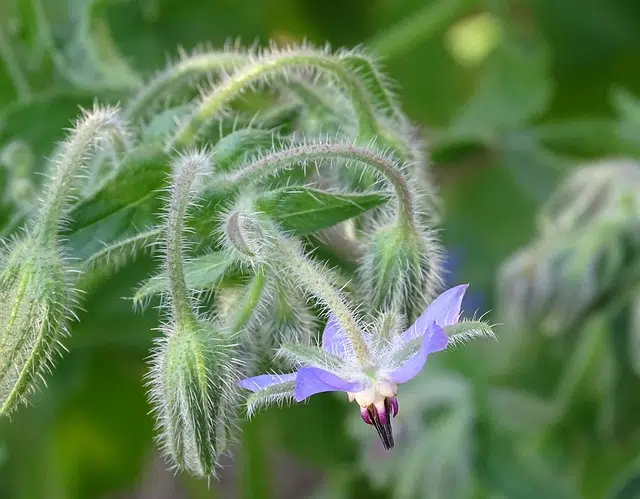
Borago officinalis is the scientific name for borage.
The Latin word borrāgo came to Catalan as boratja . That is the closest etymological antecedent of borage , as detailed by the Royal Spanish Academy ( RAE ) in its dictionary.
Borage is a plant that belongs to the Boragenaceae family group. With a height that can reach about sixty centimeters, it has a branchy stem of considerable thickness, large leaves and clusters of bluish flowers. Another peculiarity is that it is covered in hair .
Borage characteristics
Like all boragenaceae, borage is an angiosperm and dicotyledonous species. The classification of angiosperm reveals that it is a phanerogam (its reproductive organs are flower-shaped and visible) with carpels that constitute a closed cavity to house the ovules; That it is dicotyledonous, meanwhile, indicates that its embryos have two cotyledons (that is, two first leaves).
This vegetable, with the scientific name Borago officinalis , is native to the Middle East but was naturalized in regions such as South America , the Mediterranean and North Africa . For its growth it requires nitrogenous soil with good drainage, preferring to develop in full sun .
Its use in gastronomy
The stems and leaves of borage are used in different ways in the gastronomic field. They can be used raw in salads or boiled in broths and soups , for example.
Other options are to sauté the stems or coat the leaves . Borage is also a prominent ingredient in many recipes : it is used as a filling for ravioli or ravioli and to prepare a dessert known as crespillos (which consists of coating the leaves in a mixture of egg, flour, milk, anise and sugar and then frying them). , to mention two possibilities.

Borage is used in gastronomy and traditional medicine.
Borage in traditional medicine
Borage is attributed with sudorific, diuretic, cleansing, emollient and anti-inflammatory properties. For this reason, in traditional medicine , infusions are often prepared with its flowers and leaves.
From its seeds , meanwhile, an oil is obtained that is used to treat skin problems, in dietary supplements and to strengthen hair. Of course, before resorting to any natural or synthetic product with the aim of affecting your health , it is essential to consult a doctor .
The term in colloquial language
The idea of borage appears in a popular expression that is used in different regions: borage water (or borage water , in the singular). What seems to be important but ultimately turns out to be irrelevant or inconsequential is mentioned as borage water: “The gas pipeline project ended up in borage water,” “If we don't get funds, all our ideas will fall into borage water,” “The “Social organizations do not want the protests to remain in ruins.”
This phrase is linked to the fact that, in ancient times , it was believed that borage infusion provided multiple benefits, although it was later proven that many of the plant's properties were lost in the production process. Thus, borage water began to be called something that was desired and then not fulfilled, or something that was understood to be a serious problem and in the end it was not so serious.
